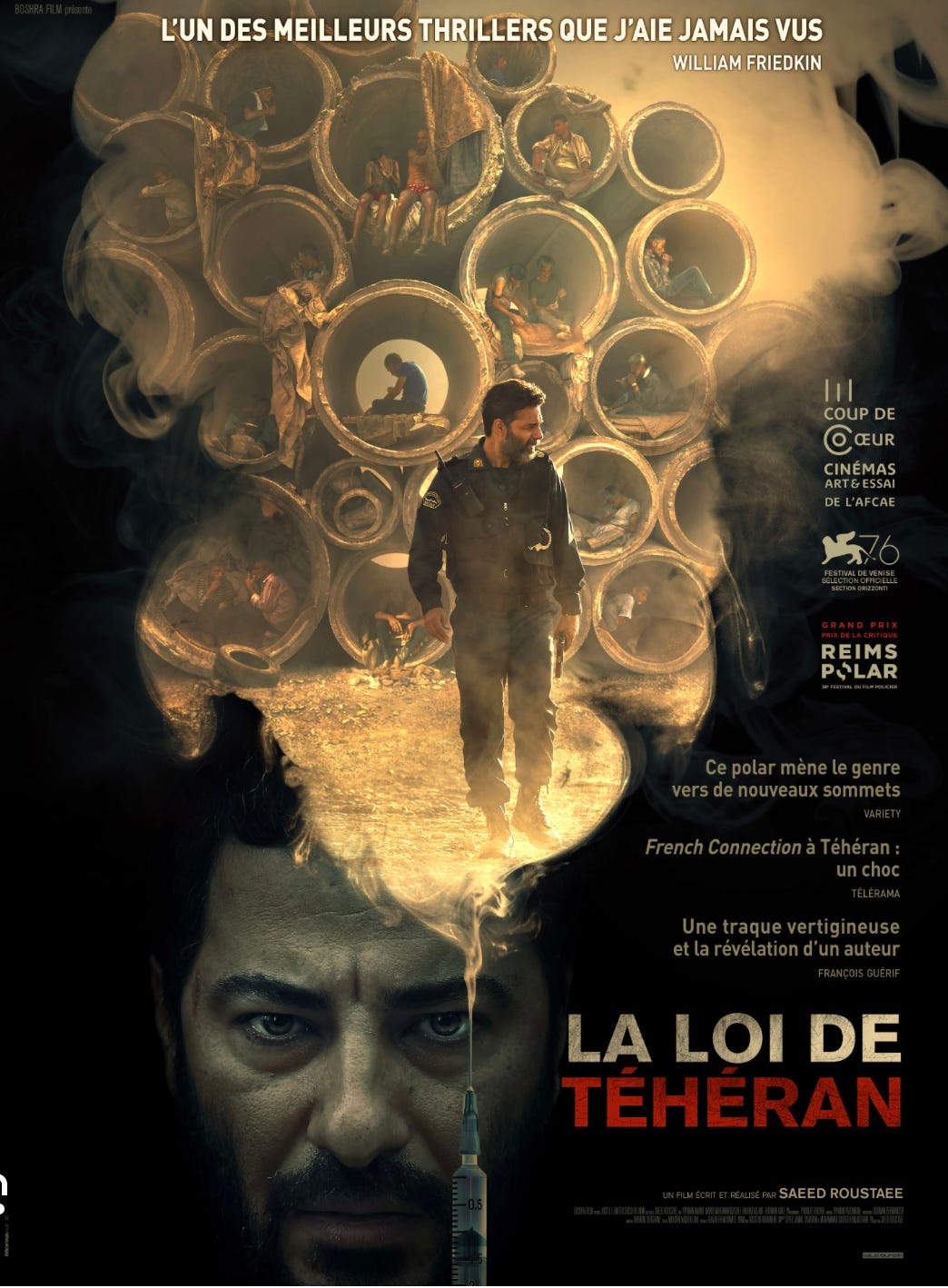Law of Tehran
Watching cop thrillers set in unfamiliar countries always offers fascinating social and cultural insights as well as the usual attractions of a crime film. I’m sure I was not the only one to be doubly surprised when watching Delhi Crime on Netflix to see that the lead character, the Deputy Commissioner of Police, was a woman (played by Shefali Shah), and that rules of police conduct did not prevent a particularly venal prisoner being slapped hard around the face by her.
Law of Tehran, released in Iran 4 years ago and written and directed by Saeed Roustayi, who has since made the 2022 Palme D’Or nominated Leila’s Brothers, won the audience award at Iran’s Fajr Film Festival in 2019. Premiering in the West in Cannes 2023 and shown on the BBC just a couple of weeks ago, it is a story of the fight against drugs with no glaring heroes or villains, just humans in a difficult environment motivated by survival, love, and selfishness, the latter of which enables them to slide into immorality without believing themselves to be villains.
Payman Maadi, who starred in Asghar Farhadi’s harrowing and haunting A Separation, plays Samad, a stressed cop whose pressures include ambition in the workplace versus a wife who threatens to divorce him because of his hours. He is morally ambiguous and his temestuous temper sees him explode not only at those he takes prisoner but at his colleague Hamid. Hamid has never got over the death of his son, murdered by criminals years before. He wants vengeance.
Iran has had a terrible heroin crisis in real life, and this drama is situated in the midst of that turmoil. Samad and his colleagues are determined to catch the baron at the top of the trade rather than the petty dealers at the bottom. But his rage doesn’t stop him from getting his police force to carry out a raid on the most powerless in society, the thousands of homeless who eke out a life in disused giant cement industrial pipes they use as shelter. The deplorable conditions are evident when these poverty stricken individuals are stripped of their ragged clothes and shoved into fetid sex-segregated cells where there is not even room to sit.
Samad also orders a raid on the home of a working man believed to be involved in the trade. This involves a brutal break-in into the man’s modest home by a band of heavy-handed officers, which leave the small son and daughter of the family traumatised. It is particularly disturbing to see the women swathed in black chodors from head to foot who aid the police. Probably from the ‘morality police’, these women are a jarring example of the subjugated joining the subjugators. When you are denied the chance to feel the Sun on your hair or arm, the savage way to win the favour of the regime is to join those imposing restrictions by inflicting sadistic cruelties on others.




